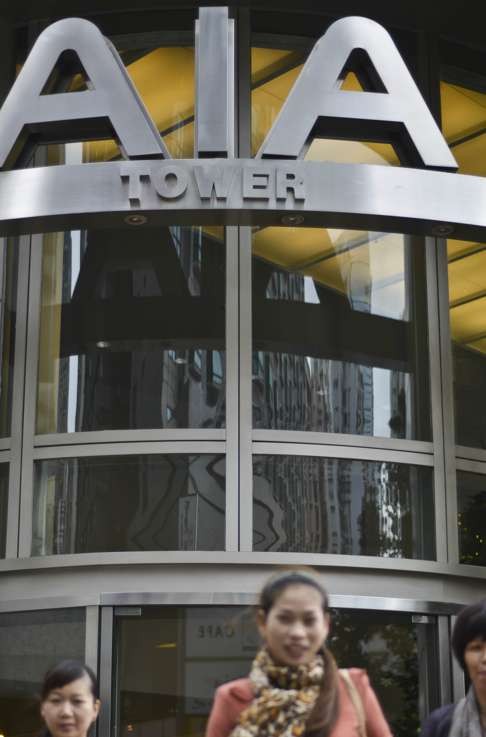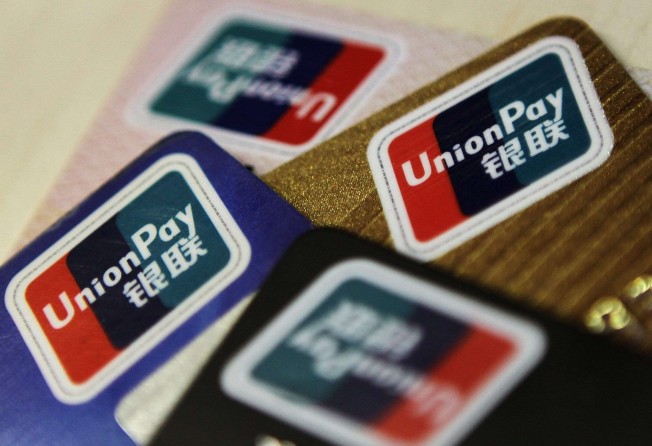
Hang Seng Index loses 1.6pc during October
Insurance companies hit hard after state-run UnionPay curbs the use of its payment services for mainland purchases in Hong Kong

Hong Kong stocks ended lower on the last trading day in October, led by insurers, which were hit hard by mainland China’s renewed restrictions over policy purchases in the city by mainland residents.
The Hang Seng Index closed 0.09 per cent lower at 22,934.54 points after fluctuating into the positive territory for most of the day, giving it a monthly loss of 1.56 per cent. The H-share index managed to rise by 0.46 per cent for the day to close at 9,559.39 points.
Major mainland banks climbed broadly, with Bank of Communications up 1.7 per cent to HK$5.91 after it reported a 1 per cent increase in net income for the third quarter.
China Construction Bank Corp rose 1.4 per cent to HK$5.68 amid a 1.3 per cent gain in net profit for the third quarter. China Minsheng Banking Corp edged up 0.1 per cent to HK$8.85.
The banking gains helped offset steep losses in insurance firms following Beijing’s move to impose renewed restrictions over policy and product purchases in Hong Kong by mainland residents.
Pan-Asian life insurer AIA Group sank 4.8 per cent to HK$48.95, making it the biggest loser among blue chips. It was also the most heavily traded stock, with a daily turnover of HK$4.67 billion.
UnionPay said on Saturday that it would tighten regulations on how mainland customers could use its debit and credit cards to buy investment-related insurance products in Hong Kong with immediate effect. The move is seen as the latest effort by the mainland authorities to try to stem capital outflows as the yuan continues to weaken.
Japanese investment bank Nomura on Monday cut AIA’s rating to “neutral” from “buy” and slashed its price target to HK$54.46 from HK$62.19.
“Hong Kong’s [insurance] business from the mainland will shrink because of the restrictions,” said analysts from Nomura in a note on Monday.
British insurance company Prudential declined 2.8 per cent to HK$128.30 while Toronto-based Manulife Financial Corp fell 0.6 per cent to HK$112.20. Their Chinese rival, New China Life Insurance, dropped 0.6 per cent to HK$33.60.
“The rebound in the HSI [since last week], including the strong performance of banks, was also partly attributable to the strengthening of the yuan,” said Vincent Ji, an analyst at China Merchants Securities (Hong Kong).
The yuan strengthened on Monday after the People’s Bank of China raised its reference rate by the most in a month.

In addition, bond yields in the mainland and overseas markets were showing moderate rises, “which could divert some capital away from the Hong Kong stock market”, he added.
On the mainland, the Shanghai Composite Index closed 0.12 per cent lower at 3,100.49 points and the large-cap CSI 300 Index lost 0.12 per cent to 3,336.28 points. The Shenzhen Component Index eased 0.06 per cent to 10,704.3 points while the Shenzhen Composite Index dipped 0.08 per cent to 2,050.28 points. The Nasdaq-style ChiNext Index fell 0.26 per cent to 2,159.76 points.
Shipbuilding firms suffered heavy losses, with China CSSC Holdings, an arm of the country’s biggest shipbuilder, down 3.1 per cent to 22.53 yuan. The firm reported on Monday a net loss of 436 million yuan in the third quarter and warned of a “continued sharp decline” in its full-year profit.
“The benchmark index is expected to maintain its upward trend, likely to break the 2,800- to 3,000-point level, around which it has been fluctuating for quite some time,” said Guotai Junan Securities in its latest research note.
The broker is positive about the prospects of pharmaceutical firms and small-cap , high-growth companies, saying capital is likely to move into the consumption sectors and growth companies following tightened restrictions over the property sector.
Asian markets traded mostly lower on Monday, with Japan’s Nikkei-225 Index down 0.12 per cent to 17,425.02 points and the Korea Composite Index off 0.56 per cent to 2,008.19 points.
On Friday, all three major US indices closed lower. The Dow Jones Industrial Average fell for a fourth session, down 0.05 per cent to 18,161.19 points. The S&P 500 Index lost 0.3 per cent to 2,126.41 points and the Nasdaq Composite Index dropped 0.5 per cent to end at 5,190.1 points.